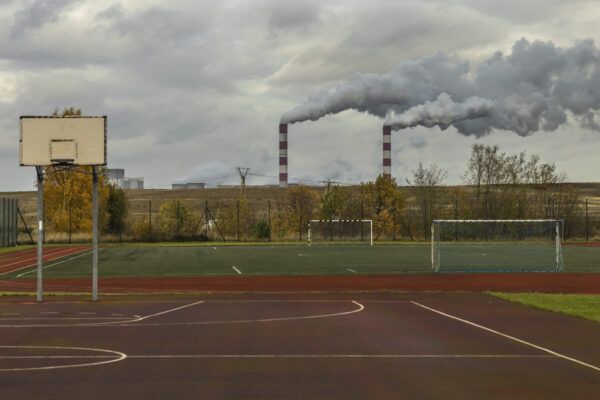2024 was the hottest year on record, with scientists predicting more high temperatures this year, resulting in droughts, wildfires and tropical cyclones. Climate change and air pollution could also risk 30 million lives annually by 2100, according to new projections by The Max Planck Institute for Chemistry.
More than ever, the world needs decisive leadership and strategic funding to address the critical intersection of toxic air, human health and climate change. Governments will have many opportunities to present their commitment to clean air and climate action at the World Health Organization’s (WHO) Global Conference on Air Pollution and Health in March, during the G20 meetings under the South African presidency, and at the UN Climate Change Conference (COP30) in Brazil at the end of the year.
Despite the challenges ahead, we’re focusing on what is needed for progress towards our goal of delivering clean air for all. Here is our global to-do list for governments, philanthropic funders and businesses to deliver clean air for people and planet.
Integrate action on air pollution and climate
Air pollution and climate change are mainly caused by burning fossil fuels – and they share many of the same solutions. Joined-up action to tackle these two challenges together enables governments to maximise their impact. Governments should include clean air considerations in their climate plans (see GCHA’s scorecard for which Nationally Determined Contributions do this well) and projects, improving public health and mitigating climate change at the same time.
Boost funding for air quality projects in highly polluted countries
Air pollution remains significantly underfunded compared to other development areas, receiving only 1% of all international development funding (2018-2022). Air pollution affects more vulnerable communities the most, and the lack of well-targeted accessible funding exacerbates this inequity.
Many of the most polluted countries in the Global South get very little funding to improve air quality. On top of that, most of the international development finance for air quality projects is provided as loans at market rate. This is likely to limit low-income and heavily polluted countries from accessing this vital funding.
Just 0.1% of philanthropic foundation funding was spent on clean air from 2015-2022. Philanthropic foundations are well placed to catalyse wider scale action, as they can be more nimble than other funders.
We urge governments, development finance institutions and philanthropic funders to increase the volume of air quality funding, especially grant funding, and to target low-income countries with high levels of pollution to create the greatest impact.
Stop development aid from creating yet more pollution
Fossil fuel emissions are by far the largest contributor to climate change, and are responsible for over half of the 8 million+ deaths attributed to air pollution each year. Despite this, international development funding for fossil fuel-prolonging projects grew by 350% in a one-year period. Public funding reinforces the reliance on polluting fossil fuels and delays a just energy transition, while also accelerating global warming and damaging the health of our communities.
Slam on the climate ‘emergency brake’ by cutting super pollutants
Super pollutants, including tropospheric ozone and black carbon, are collectively responsible for half of all global warming to date. These climate forcers last in the atmosphere for relatively short amounts of time but have an outsized impact on warming, so reducing these pollutants is critical to realising fast climate change mitigation. In 2024, the UN called action on super pollutants ‘our emergency brake’. All governments should include all super pollutants in their 2025 Nationally Determined Contributions (the Climate and Clean Air Coalition provides practical guidance on how to do this). Governments also need to elevate super pollutants in the global climate agenda, building towards meaningful commitments at COP30.
Make the economic case for improving air quality
Air pollution hampers global workforce productivity and economic activity to the tune of 1.2 billion lost work days per year. Globally, a stronger case needs to be made that cost-effective opportunities to cut polluting emissions are available and must be accelerated at scale to advance public health and well-being. This paper from the Our Common Air commission lays out how.
More businesses need to act on air quality
Commercial activities, such as energy production, agriculture and transport, contribute to around 40% of particulate matter emissions. While these activities are scrutinised for their greenhouse gas footprint, their emissions of toxic air pollutants too often go unchecked. Only 3% of urban companies assessed by World Benchmarking Alliance in 2024 disclose reductions in key air pollutants. By taking action on air quality, businesses can boost their environmental, social and governance (ESG) impact. We encourage businesses from all stages of their sustainability journeys to explore this toolkit to make the business case for clean air.
Investors are also primely positioned to drive corporate action on critical sustainability issues. ShareAction’s briefing Clearing the Air sets out the first-ever investor case on tackling air pollution.


